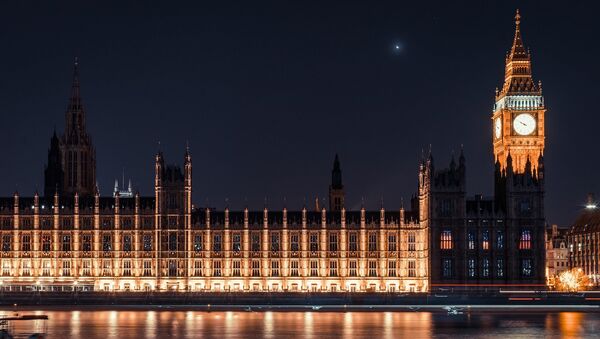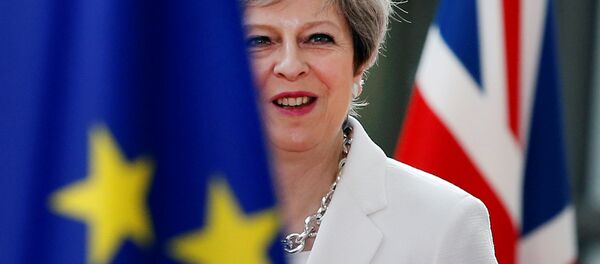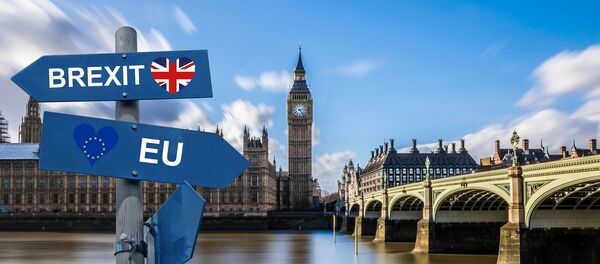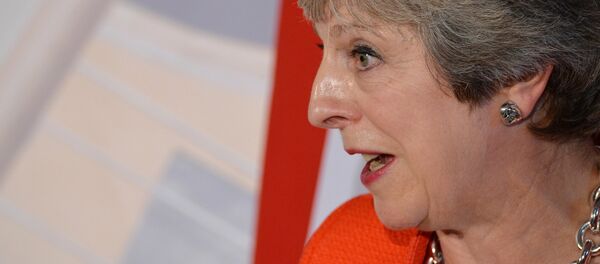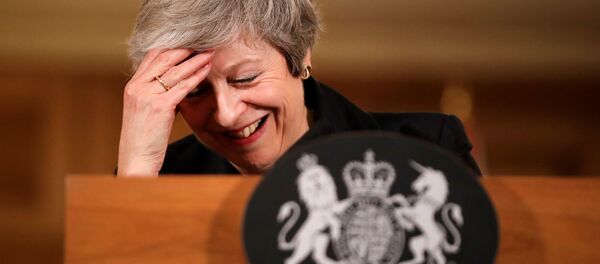Sputnik discussed this with Gavin Barrett, Jean Monnet Professor of European Constitutional and Economic Law at the University College Dublin.
Sputnik: Theresa May's deal is both unacceptable to the lawmakers in Parliament and not subject to renegotiation by the EU as we've been told by Jean-Claude Juncker today. What's the embattled Prime Minister left to do now? Is there anything left for her to do? Is it time for her to move aside?
Beyond withdrawing the matter from the parliamentary vote and indicating that she will travel to Brussels today to consult with the EU leaders and other member state leaders, and the Dutch and German Foreign Ministers, Prime Minister hasn't indicated what she intends to do; but I think it's expected that she will retable the deal for a vote a lot later, perhaps in January at which point parliamentarians would be effectively faced with the choice of accepting her deal or total economic chaos. I'm not sure that is necessarily a good strategy but that seems to be what she intends to do.
Sputnik: There've been a few comments already with regard to the situation with the British pound; it's, obviously, already fallen in value against global currencies. Some experts are saying that there will be a run on the pound as well; what's your take on the potential economic woes that the UK could experience because of this utter deadlock and malaise?
Gavin Barrett: Certainly, it's not doing the value of the pound any good at the moment. I suppose that the real worry would be, though, as Britain actually leaves without a deal next March, Mark Carney, governor of the Bank of England, has predicted at that point that over a period of time that could be up to 10 per cent loss of GDP. He also predicted a potential 10 per cent increase in consumer price index; that's a lot of economic misery.
READ MORE: May Calls Off Brexit Deal Vote Amid Lack of Tories' Support — Politicians
I would imagine that the travails that the pound is currently experiencing in the currency market would pale in comparison with what will happen in event of a no-deal Brexit. I think there would be a very large fall in the value of the pound sterling at that stage; so Brexit is, certainly, not good economic news for the United Kingdom, but I think that the prospect of a no-deal Brexit, in particular, is extremely worrying. There's no doubt about that.
Sputnik: What are your thoughts with regard to any kind of movement when May travels to Brussels for the summit? We've had various comments from Jean-Claude Juncker; he tends to say certain things but then things get sort of watered down from both sides. Do you think that when both of them get together, they can renegotiate some elements of this particular deal?
He also added rather ominously that we would also discuss our preparedness for a no-deal scenario. So, the deal is effectively concluded from the EU side, they've made whatever concessions they're going to make. They may do whatever they can to package that as pleasantly as they can, as accommodatingly as they can, for Theresa May, but beyond that they are not going to reopen the deal. I think that's quite clear.
Sputnik: If the outcome were to be a no-deal conclusion next year, what ramifications could it have on Ireland?
Because Ireland, unlike the UK, exports literally everything it produces, as a result, they're in a very vulnerable position; and particular industries that would be hit hard in Ireland would be the farming industries, the food industries, small and medium-sized enterprises and enterprises that are situated along the border with Northern Ireland. So, Ireland is in a very poor situation. But the UK is also because in the first place they are administratively not ready to reimpose a vast range of controls and checks and that would legally be required when they exit the market and the customs union.
READ MORE: Brexit Crisis: PM May Should Resign if She Loses Confidence Vote — Committee
We can expect very serious delays for travellers and goods crossing the borders of the UK. It's the major ramification for British industry and especially those operating on just in time basis, like the car industry; there're major ramifications for suppliers including food and pharmaceuticals suppliers. So, it's a deeply worrying situation both for the United Kingdom and it's important for Ireland as well.
Sputnik: What's the general feedback, the opinion of Irish people that you've been speaking with on a daily basis not just within the university, but also out in the streets of Dublin?
In actual fact, the reaction to Brexit in Ireland has been different to that of the UK; and it's regarded with virtual unanimous concern in Ireland with very few exceptions. It's regarded as being a damaging development, and it's regarded with some puzzlement as well. Thus the feeling is that no matter what kind of Brexit the United Kingdom ends up with, it's going to end up in a worse position.
The views expressed in this article are solely those of Gavin Barrett and do not necessarily reflect the official position of Sputnik.
